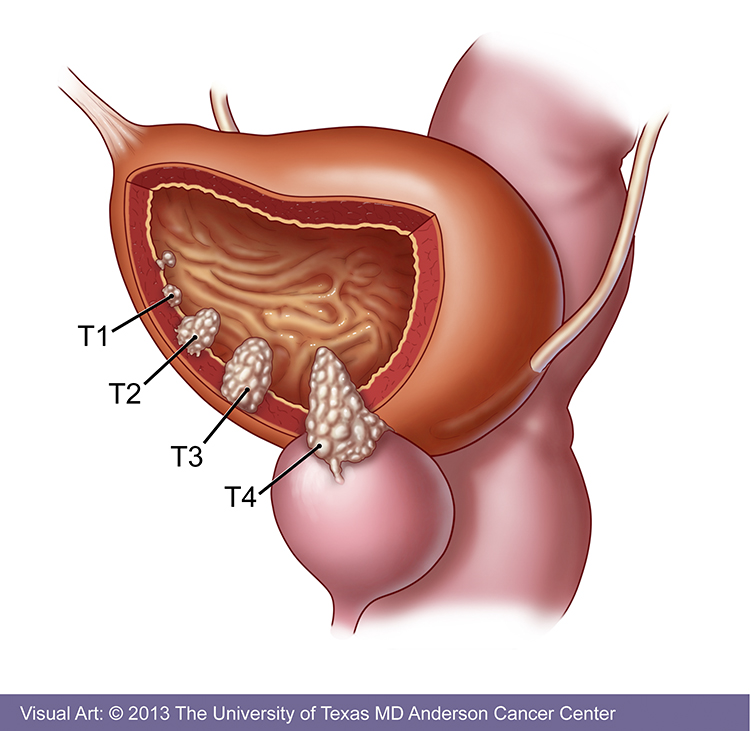Advice please on superficial bladder cancer and thin bladder wall.
Cancer thin bladder wall.
For some cases viruses may be the cause of these growths.
Over time they can spread deeper into the other layers.
Noncancerous benign tumors include papillomas.
Men are more likely to develop bladder cancer than women are.
This type of cancer has cells that are closer in appearance and organization to normal cells well differentiated.
In either case the cancer is only in the inner lining layer of the bladder.
Lymph node involvement ranges from n0 no cancer in lymph nodes to n3 cancer in many lymph nodes or in one or more bulky lymph nodes larger than 5 cm.
Exposure to certain chemicals.
A low grade tumor usually grows more slowly and is less likely to invade the muscular wall of the bladder than is a high grade tumor.
I havent heard of a thin bladder wall making muscle invasion more likely and have also read that women s bladders are thinner in general.
27 apr 2011 9 38 am.
Whereabouts are u in uk are u at a hospital that deals with a lot of bladder cancer.
Invasive bladder tumors can range from t2 spread to the main muscle wall below the lining all the way to t4 tumor spreads beyond the bladder to nearby organs or the pelvic side wall.
The cancer has grown through the inner lining of your bladder but not the muscle of your bladder wall nor has it spread to your lymph nodes or distant organs.
Take care claire x.
Bladder cancer is the growth of abnormal or cancerous cells on the inner lining of the bladder wall.
Most bladder cancers are detected at early stages when the tumor has not spread outside the bladder and treatments are successful.
We changed after the perforation and it has made so much difference to hubby s treatment plan.
Though it can occur at any age most people diagnosed with bladder cancer are older than 55.
The transitional epithelium on the picture is the lining layer where most bladder cancers start.
As the cancer grows through the layers of the bladder wall it becomes harder to treat.
Bladder cancer risk increases as you age.
It has not invaded spread deeper into the bladder wall.
Abnormal tissue growth in the bladder wall causes tumors to grow and the wall to thicken.

